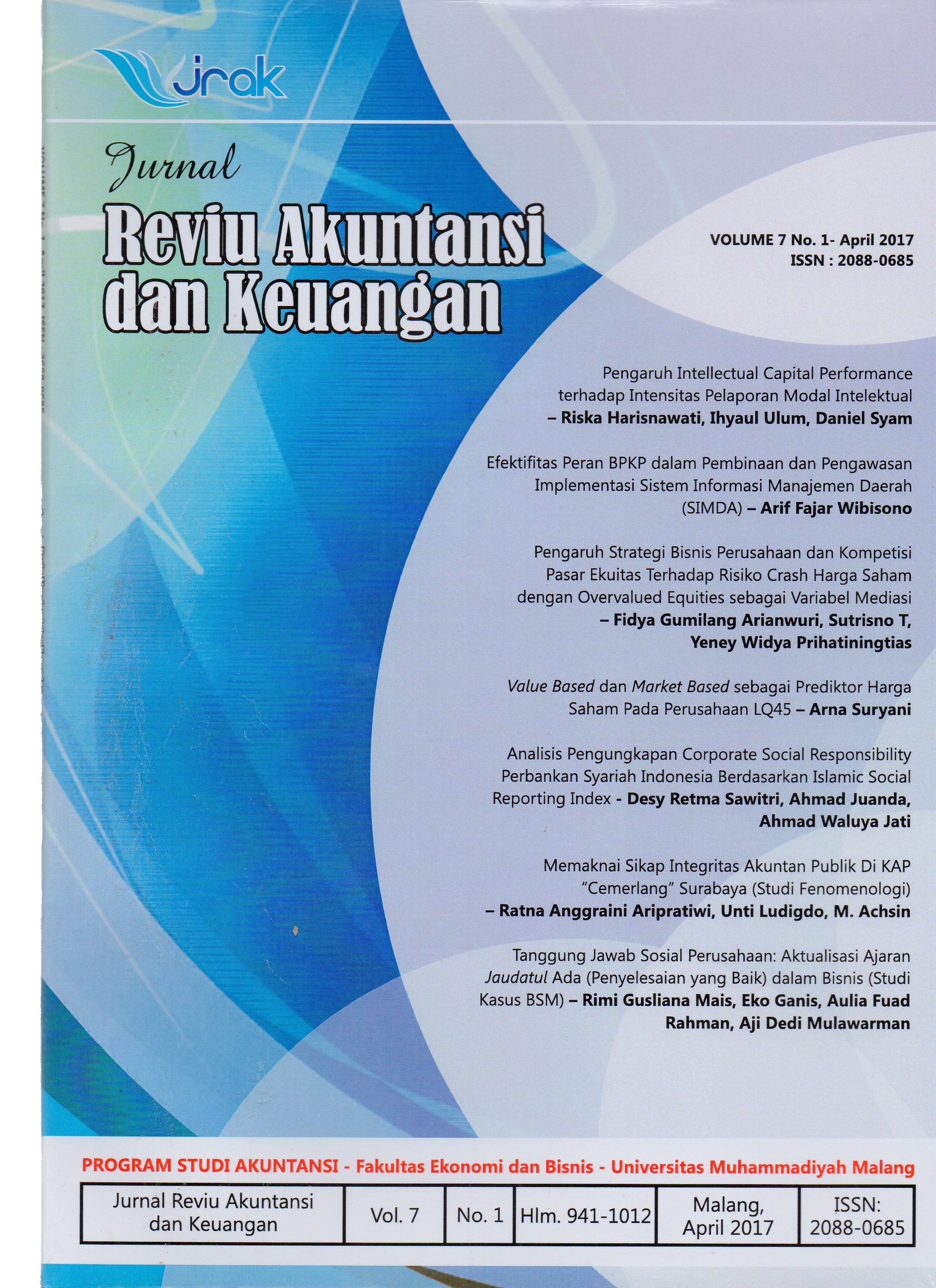Efektifitas Peran BPKP dalam Pembinaan dan Pengawasan Implementasi Sistem Informasi Manajemen Daerah (SIMDA)
DOI:
https://doi.org/10.22219/jrak.v7i1.09Abstract
The purpose of this paper is to analyze the effectiveness of Indonesia’s government internal
auditor Badan Pengawasan Keuangan Pembangunan (BPKP) role on supervison dan controlling
on implementation aplication Sistem Informasi Manajemen Daerah (SIMDA). This research is
a qualitative research by using descriptive analysis and interview with senior auditor in BPKP
Yogyakarta, he is a coordinator ini goverment accounting region. This result are minimum human resources, the low government budget, and employee are difficult to changing to the new
working method made be the problems in efektiveness of supervison and controling implementation SIMDA. The limitation on this research is only the one kind of supervison and controlling
on SIMDA aplication. The future research must be another prosedures supervision and controlling in BPK and more object research.
Key words: BPKP, Efektiveness, SIMDA
Downloads
Downloads
Published
Issue
Section
License

Jurnal Reviu Akuntansi dan Keuangan is licensed under a Creative Commons Attribution-NonCommercial-ShareAlike 4.0 International License.
Authors who publish with this journal agree to the following terms:
- Authors retain copyright and grant the journal right of first publication with the work simultaneously licensed under a Creative Commons Attribution-NonCommercial-ShareAlike 4.0 International License that allows others to share the work with an acknowledgement of the work's authorship and initial publication in this journal.
- Authors are able to enter into separate, additional contractual arrangements for the non-exclusive distribution of the journal's published version of the work (e.g., post it to an institutional repository or publish it in a book), with an acknowledgement of its initial publication in this journal.
- Authors are permitted and encouraged to post their work online (e.g., in institutional repositories or on their website) prior to and during the submission process, as it can lead to productive exchanges, as well as earlier and greater citation of published work (See The Effect of Open Access).










